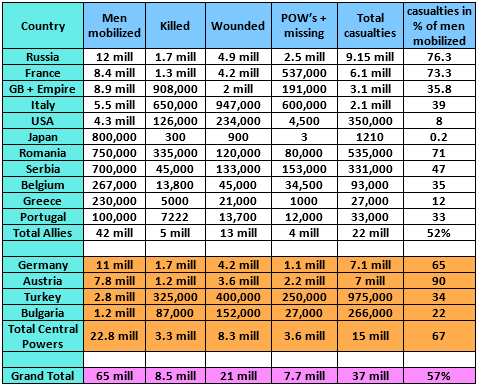For a political scientist, historian or sociologist to say that he does not understand the “willingness to sacrifice one’s life for the idea of a nation”—is equivalent to a physicist saying he does not know what an atom is, or a biologist saying he does not know what a cell is. Willingness to die for a country is the bedrock—the sine qua non—of political history. So—we need to begin at the beginning: to start over. Why have we failed to focus all our energies and research on understanding this fundamental question? What are we to say about the data reproduced above? This is what men do? Is it “natural” for men to acquiesce to being slaughtered in battle? Isn’t it astonishing that human beings know so much about so many things that barely touch us (e.g., that there are 225 billion galaxies in the universe). Yet we know virtually nothing about this fundamental thing—which lies at the heart of the human condition. |
